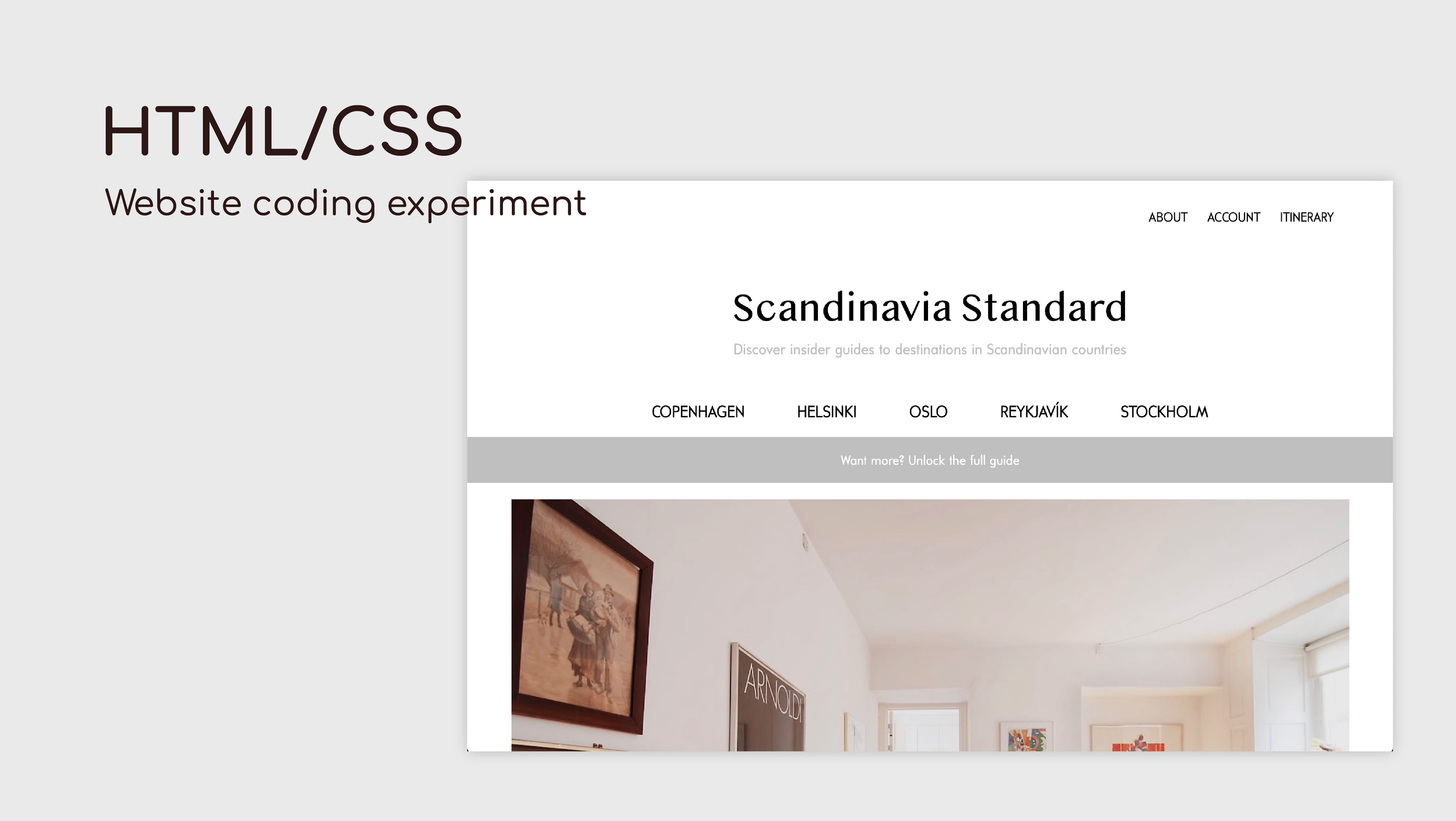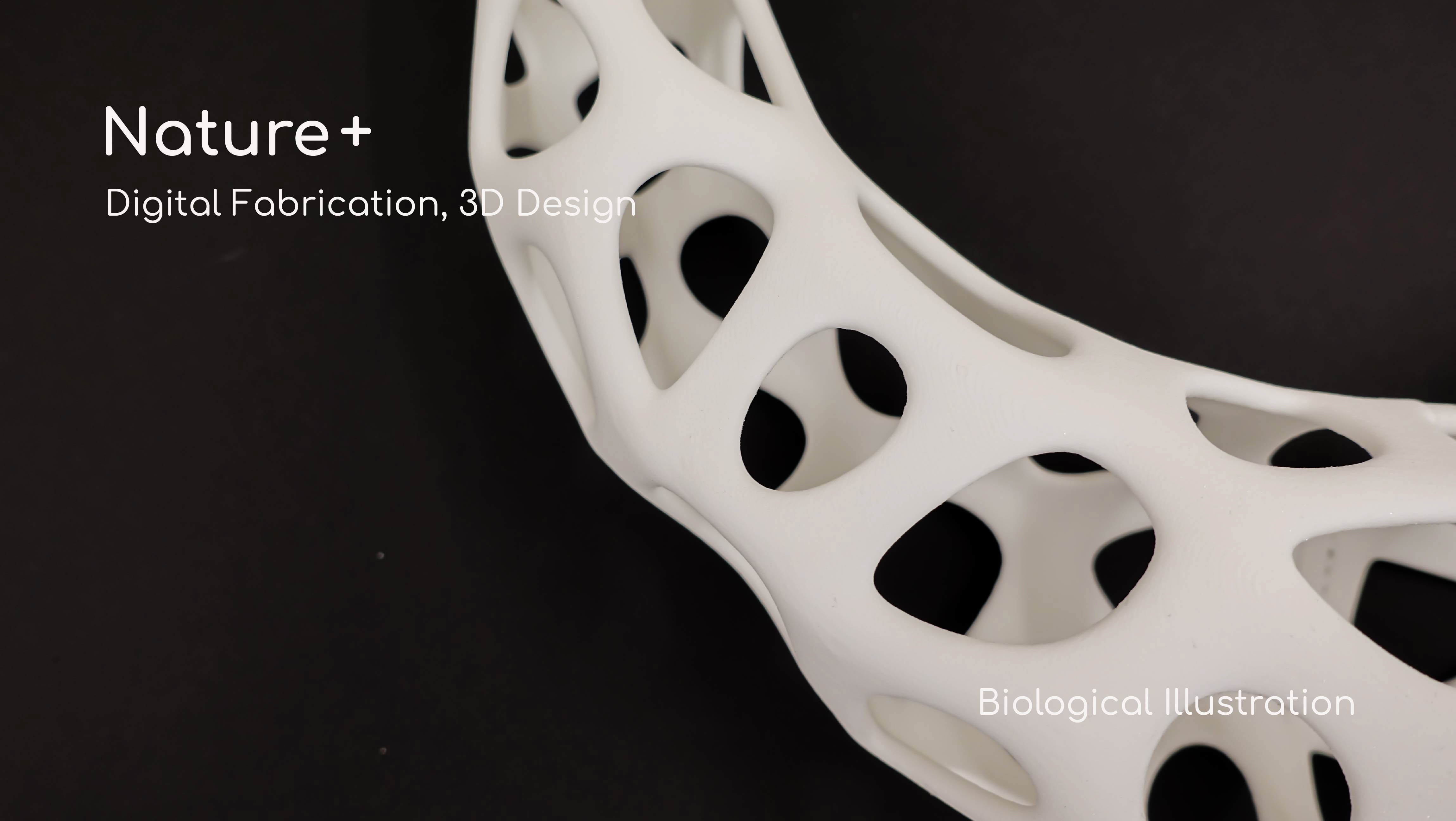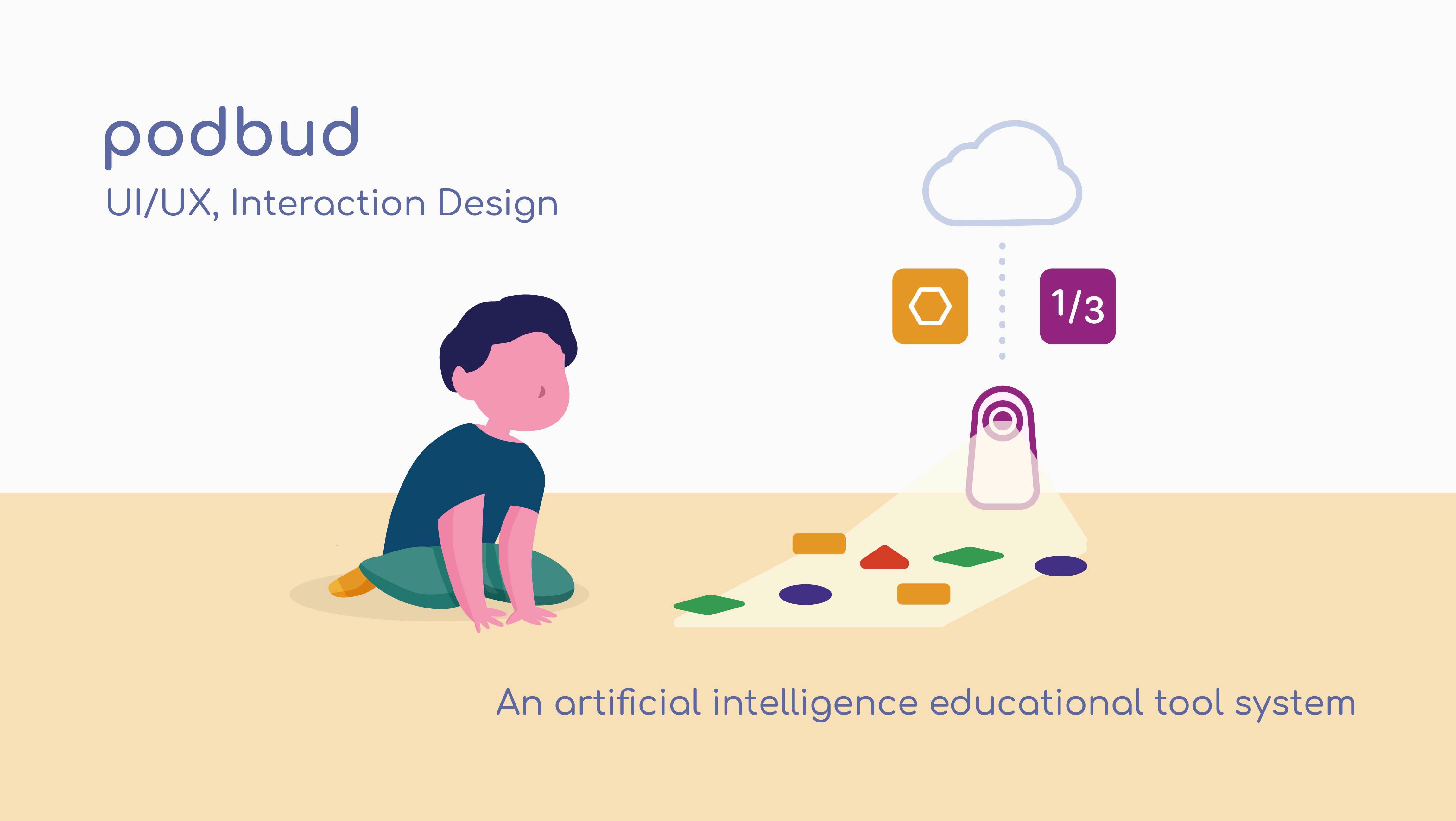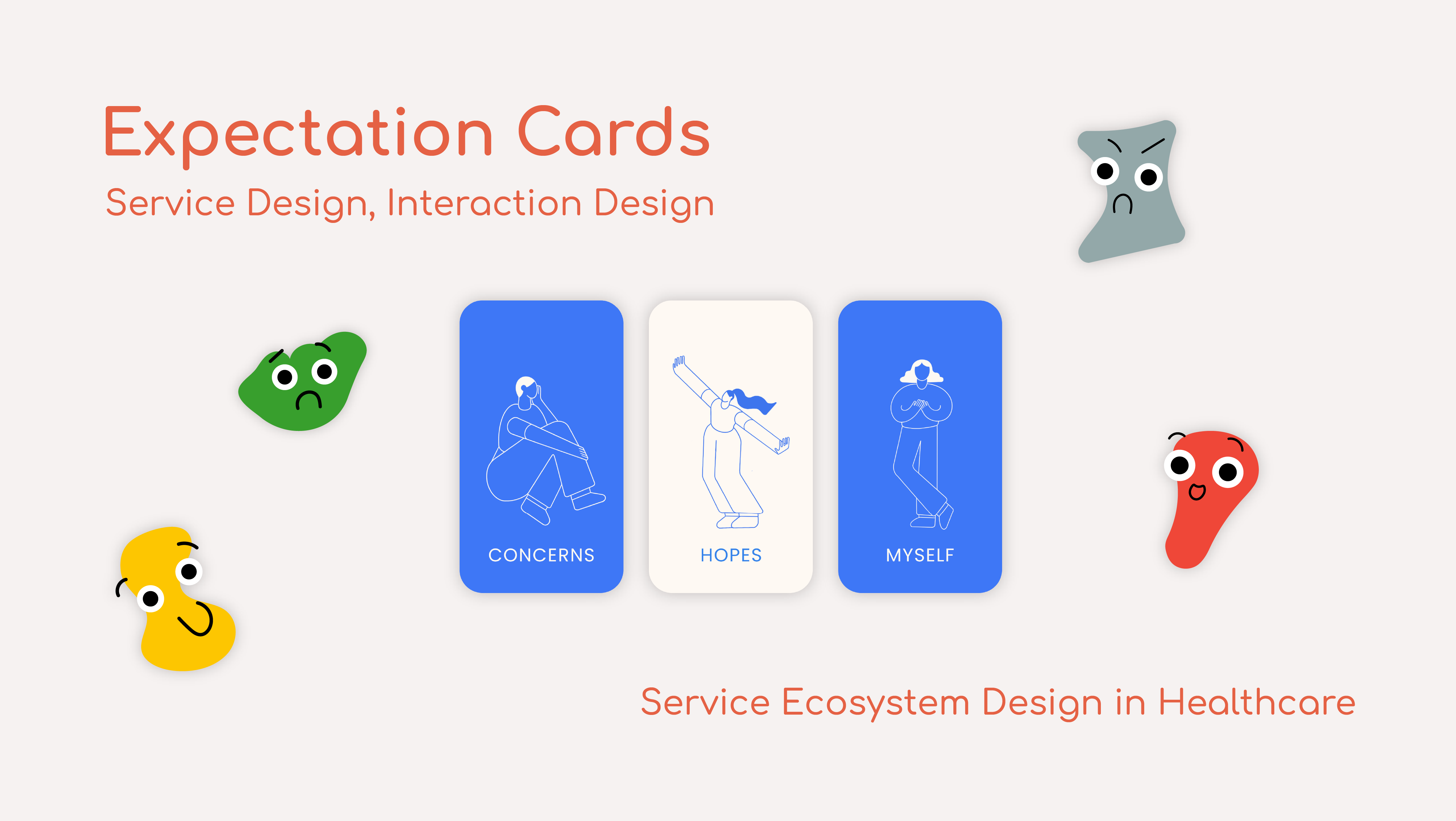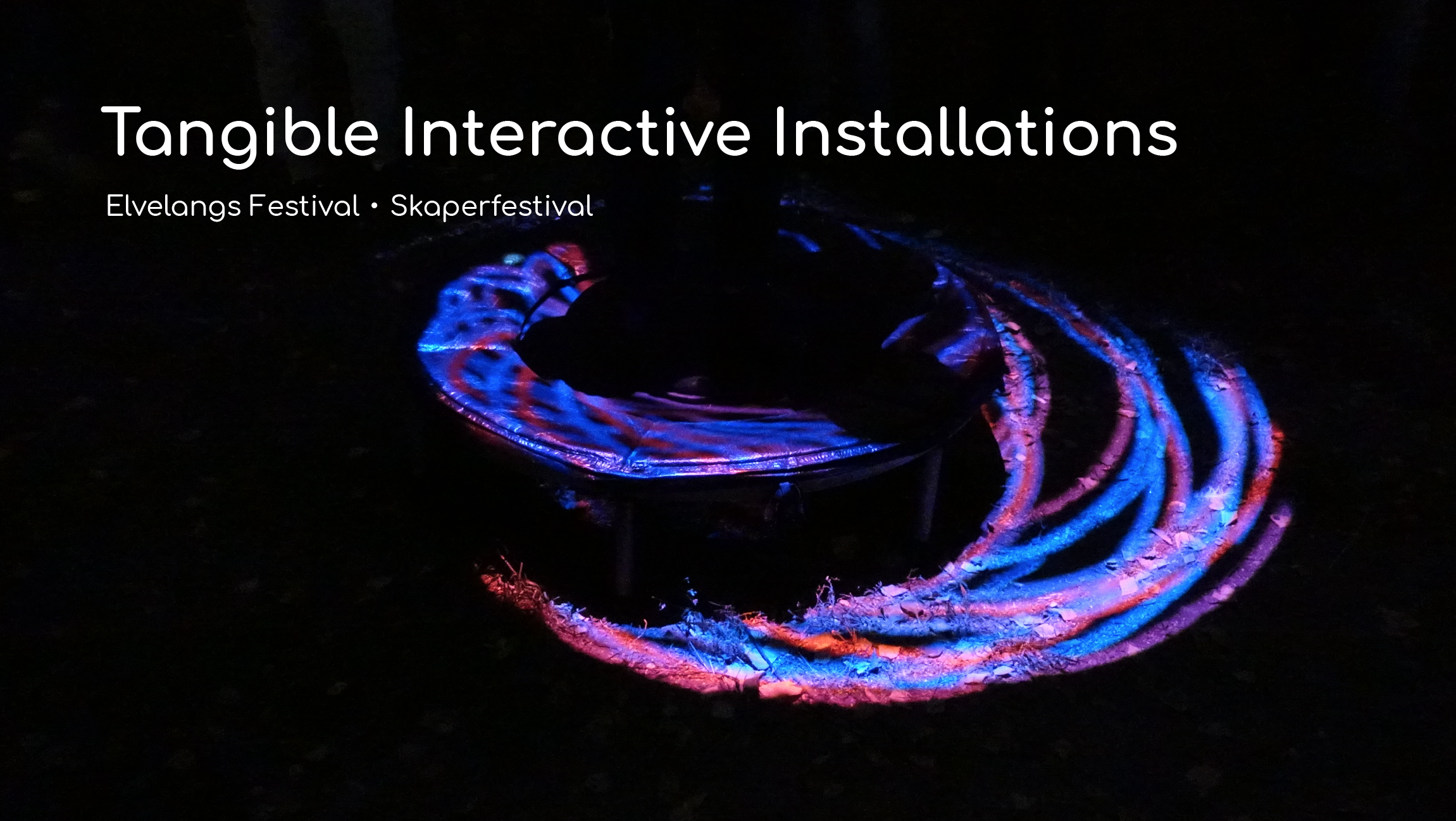Goal
The goal of this project is to bring up the focus of the next of kin in the home healthcare context and explore the potential resource of supporting home care tasks within their social group and community.
Motivation
My motivation to do a diploma about next of kin comes from my life experience. After my grandparents had a stroke, my parents drove to visit every weekend. They always left around six in the morning and came back at the midnight. After the exhausting weekend, they had to wake up early for tomorrow’s work. Then again, the same routine for next week.
Along with the caring responsibilities on their shoulders, my parents also struggled with the finance of my grandparents’ healthcare. I still remember the feelings and darkness that my parents were facing.
Long-term health care is a difficult topic. In my perspective, I don’t think there will be any perfect solution for this kind of life change. However, we can choose not to face it alone.
Along with the caring responsibilities on their shoulders, my parents also struggled with the finance of my grandparents’ healthcare. I still remember the feelings and darkness that my parents were facing.
Long-term health care is a difficult topic. In my perspective, I don’t think there will be any perfect solution for this kind of life change. However, we can choose not to face it alone.
Background & Context
What is the current situation?
Aging population
Today, just over one in nine people in Norway are aged 70 years or over. This percentage is set to increase. In the medium alternative, roughly every fifth person in Norway will be aged 70 or over by 2060.*
*SSB 2021, Key figures for the population, accessed 29 April 2021, <https: //www.ssb.no/en/befolkning/nokkeltall/population>)
A Shortage of nurses and healthcare assistants
However, there will be a shortage of nurses and healthcare assistants in the coming years.
“No other occupation in Norway faces a greater labour shortage than nursing, according to a survey carried out by the country’s welfare agency NAV. But there is also a serious lack of healthcare assistants.“*
*Nordic Labour Journal 2020, Hospital wants to double the number of healthcare assistants, accessed 29 April 2021, <http://www.nordiclabourjournal.org/i-fokus/in-focus-2020/ article.2020-02-16.0943649321/article.2020-03-24.2080083899>
Interviews & Workshop
After doing desktop research, I started to contact people who have a health care related background or professional experience.
Interviews - Voices from professionals and next of kin
I conducted 5 in-depth interviews with interviewees who include a healthcare project manager, nurse, nurse assistant, next of kin, and healthcare innovator and next of kin.
Key insights from interviews
1. The patient is always in focus
“The next of kin does all the work, and is always behind the patient. Nobody asks how they are doing, how do they do with their life”
- Health care professional
2. Overwhelming organization to do
“It’s a huge problem.
Because now you have to organize yourself, you have to organize the patient, you even have to organize the municipality. How to deal with that?”
Because now you have to organize yourself, you have to organize the patient, you even have to organize the municipality. How to deal with that?”
- Healthcare innovator and next of kin
Day in the Life of Caregiver workshop
I carried out the workshop with caregivers who have in-home healthcare experience, including home care nurses and next of kin.
In the workshop, we went through the home care tasks that the caregiver might provide throughout a day, to see where and what could be done, and how volunteers might be able to support the daily life of them.
Lend a Hand
A digital service that coordinates home care tasks and informal support for next of kin.
Information architecture
Features
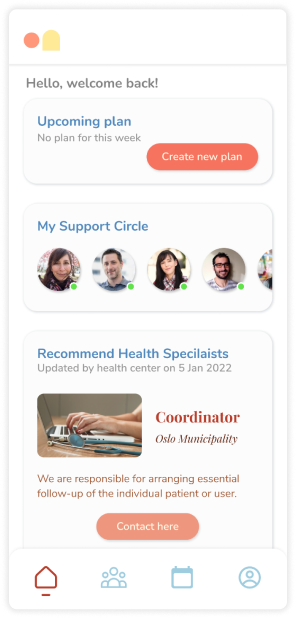
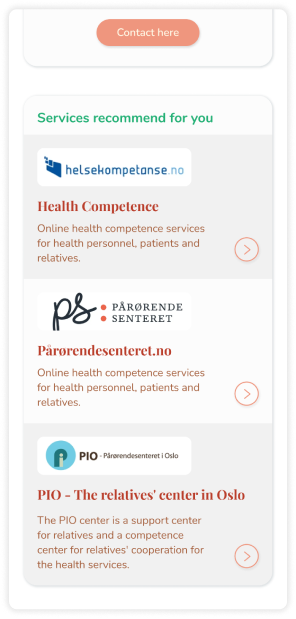
1/ Health specialists & organizations recommendation
The recommendations are based on the patient’s disease after the next of kin register an account. This part is updated by the coordinators from health- related units.*
*Due to regulations around personal data sharing, the ascriptive responsibility of updating health recommendations is a hypothesis in this content.
2/ My Support Circle
This page shows your support team from your social networks, like your friends, neighbours, or other people you already know.
By pre-registering in the service, the volunteers can select what type of support they can provide now.
3/ Availability Calendar
This page shows the available time of your support circle. By selecting the spots, you can schedule the upcoming plans with your friends or neighbours.
User tests and feedback
Core outcome
- Provide a way to match informal supports to the daily tasks of next of kin in the home
- Easier for next of kin to find supports
- The informal supports are based on a certain level of trust
- Easier to schedule the plans of home care tasks
- Enhance the accessibility of the existing resources
- Easier for next of kin to find supports
- The informal supports are based on a certain level of trust
- Easier to schedule the plans of home care tasks
- Enhance the accessibility of the existing resources
Value
The value that “Lend a Hand” provides is a sustainable way to enhance the homecare life of families. Engaging the local community together in mutual assistance, lowering the burden of accessing help and provide next of kin or elderly who live alone a chance to reach out support.
Right now, I only show the screens of next of kin because that has been my focus. Of the need to investigate how to incentivize volunteers, there are lots of groups* that are already doing it. Looking into the current volunteering systems will be the next step for further development.
Right now, I only show the screens of next of kin because that has been my focus. Of the need to investigate how to incentivize volunteers, there are lots of groups* that are already doing it. Looking into the current volunteering systems will be the next step for further development.
* “In Norway, there are approximately 100,000 volunteer organizations. In these organizations, we collaborate on issues that are important to us.”- Frivillighet Norge, Available from: https://www.frivillighetnorge.no/lynkurs/english/
Reflection & Conclusion
Emerging challenges
Road forward - Easier connect to healthcare professional
Road forward - Easier connect to healthcare professional
Some interviewees reflected that it is hard to contact health specialists. When they contact to municipality or health sector, sometimes they don’t pick up the phone, or they should call back but they didn’t. If Lend a Hand could have a chatbox that can contact healthcare professionals, next of kin can wait on the message response rather than calling again.
Anticipation
- How do the informal supports get on?
- What if there are no people from your support circle available at the moment?
- What if informal supports do something wrong? Or they didn’t do the works they were supposed to do?
- What if one of your friends suddenly canceled to come over, what would be the solution?
- What if you are not hearing back from the healthcare professional for a week?
- What if there are no people from your support circle available at the moment?
- What if informal supports do something wrong? Or they didn’t do the works they were supposed to do?
- What if one of your friends suddenly canceled to come over, what would be the solution?
- What if you are not hearing back from the healthcare professional for a week?
Collaboration challenges between home care workers and informal caregivers*
According to the research*, unclear expectations regarding the division of tasks may cause frustration in both the volunteer and informal caregiver setting. Since healthcare professionals’ responsibilities are primarily connected to the individual care receiver’s needs (Molven, 2017), communicating with informal caregivers or volunteers is not on formal caregivers’ daily task lists.
*Marianne Sundlisæter Skinner, Håkon Lorentzen, Laila Tingvold, Oddrunn Sortland, Nina Beate Andfossen & Magnus Jegermalm(2020), Volunteers and Informal Caregivers’ Contributions and Collaboration with Formal Caregivers in Norwegian Long-term Care, Available from: https://www.tandfonline.com/doi/full/10.1080/08959420.2020.1745988
Conclusion
This project highlights the current in-home health care situation and explores the possibility of potential support. As a result, I proposed Lend a Hand, a platform that coordinates home care tasks and informal support for next of kin. There is various way to engage local people in-home care support, but none of them have spread among the people yet. I hope in the near future, the concept of community- based home care support will be more common in our lives.
Last but not least, I have to say I won’t be able to solve all the problems of the family caregivers, but my hope is just to decrease the burden of the hassle a little bit more.
Last but not least, I have to say I won’t be able to solve all the problems of the family caregivers, but my hope is just to decrease the burden of the hassle a little bit more.

